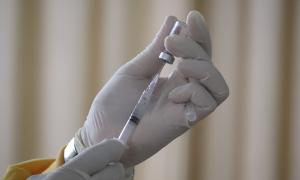COVID vaccines: do we need a booster dose at this time?

After reviewing the available scientific evidence, the Multidisciplinary Collaborative Group for the Scientific Monitoring of COVID-19 (GCMSC) concludes that there is currently no evidence that the general population needs a booster dose
As a result of the wave caused by the SARS-CoV-2 delta variant, several high-income countries have considered the possibility of offering booster doses to the population already vaccinated with a complete vaccination regimen. After an analysis of the scientific evidence available to date, the Multidisciplinary Collaborative Group for the Scientific Monitoring of COVID-19 (GCMSC) has concluded that, in the general population, there is no evidence that a booster dose is needed at this time.
"From the immunological point of view, all studies to date indicate that the COVID-19 vaccines currently approved by the European Medicines Agency induce a long-lasting immunological memory. While protection against delta variant infection has decreased, the vaccines remain highly effective against severe disease and death", stresses Julià Blanco, principal investigator at IrsiCaixa and lead author of the expert group's paper. However, as the GCMSC highlights, there are some exceptions.
Immunosuppressed people need an additional dose
There is strong evidence in favor of an additional dose in some groups of immunosuppressed patients, necessary to achieve levels of immunity similar to those observed in the general population. Therefore, in this case the third dose should be considered as part of the vaccination schedule, as is already done with other vaccines, and not as a booster dose. Spain, like several other countries, has already begun to administer third doses of mRNA in this specific population (patients with solid organ transplants, treated neoplasms, hemodialysis patients, and individuals with advanced HIV infection). In Catalonia, this group represents about 0.5% of the population (approximately 40,000 people).
Some groups may require a booster dose in the near future
Older people (especially those over 80 years of age and those who have not suffered from COVID-19) develop a lower immune response after vaccination. Some recent data suggest that the risk of infection or severe COVID-19 in vaccinated people is higher in elderly and "frail" individuals. Therefore, this population is likely to require a booster dose that could be offered, for example, during the influenza vaccination campaign next winter. More data need to be accumulated to establish clear age or frailty criteria.
Other specific groups may require specific monitoring due to their increased exposure to the virus. This is the case of healthcare workers, for example. Some studies report an increase in the incidence of infections in this group. However, these infections are mostly mild, and it is not yet known how much of this is due to a possible loss of vaccine efficacy and how much is due to increased circulation of the delta variant in the community and the relaxation of non-pharmaceutical measures.
"In any case, it will be necessary to establish the necessary mechanisms to closely monitor vaccine failures in the particularly susceptible groups, and also in the general population", says Silvia de Sanjosé, president of the GCMSC. These data will be very useful in deciding if and when a booster dose will be needed.
Multidisciplinary Collaborative Group for the Scientific Monitoring of COVID-19
The GCMSC is a group promoted by the Barcelona Institute for Global Health (ISGlobal), a center promoted by the "la Caixa" Foundation, and the Official College of Doctors of Barcelona (CoMB), with the support of the Catalan Association of Research Centers (ACER).
The people signing the communication are Julià Blanco, Adelaida Sarukhan, Quique Bassat, Magda Campins, Robert Güerri, Carles Brotons, Juana Díez, Mireia Sans, Josep M. Miró and Silvia de Sanjosé. The group has been supported by Antoni Plasència and Josep M. Antó.